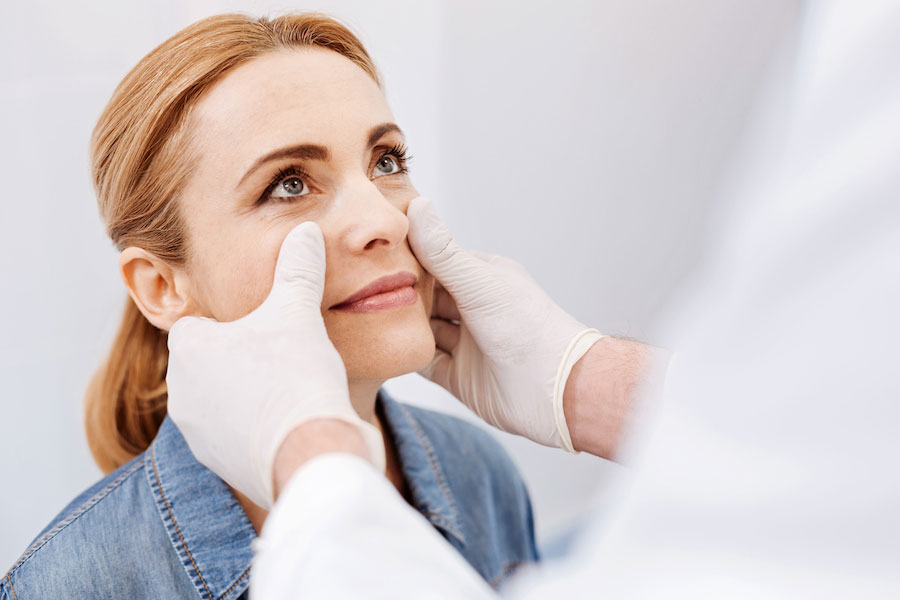If you’re having plastic surgery, being properly prepared for both the procedure and your recovery is important. This is the case whether you’re having a single procedure, such as a nose job, or a mommy makeover, which involves multiple procedures at once.
We’ve rounded up helpful tips on how to prepare for plastic surgery, including preparing your body, your mind and your home.
1. Medical Preparation
The following are important steps you should take to help you be medically prepared for your plastic surgery:
- Find the right plastic surgeon who is board certified, has proven experience and expertise in the procedure you’re considering and who you feel comfortable with.
- Read up on the surgery you want to ensure you’re fully informed and educated ahead of your consultation.1
- Learn what health prerequisites are associated with the surgery you want. For instance, you may need to be at your ideal weight or have finished having children or breastfeeding to get the best results from certain procedures, such as a breast lift.2
- Have a medical evaluation to make sure you’re fit for surgery, which usually involves blood work and other tests if you have any preexisting health conditions.3
- Take a list of any medications you’re on and other pertinent medical information with you to the consultation.2
- Ask the doctor any questions you have, including what to expect before and after your surgery. Write them down ahead of time so you don’t forget.
- Learn what medications and supplements need to be avoided ahead of surgery — for instance, nonsteroidal anti-inflammatories, which can increase the chance of bleeding.4
2. General Preparation
Even if your surgeon anticipates a quick and easy recovery, some practicalities need to be considered ahead of any surgery. Be sure to do the following once you have a surgery date:4
- Arrange transportation and support. You’ll need someone who can drive you to and from your surgical appointment and stay with you for at least the first night. If you don’t have anyone who can do this, you can hire a professional caregiver.
- Schedule time off work. Ask your surgeon how much time you’ll need to take off from work and other activities so you can give ample notice and make any necessary arrangements for your absence.
- Establish childcare. If you have children, you’ll need to find someone who can look after them while you’re recovering. If you have young children, you may not be able to lift them until you’re healed, depending on the type of procedure you have.
3. Financial Preparation
Plastic surgery is an investment in yourself, so it’s important to plan how you will pay for your surgery.
Check with your insurance company to see if your procedure is covered by your plan. If it is, be sure to choose a practitioner who accepts your insurance.
If you need to finance your surgery, ask about the payment options available when you have your consultation. Payment options vary between plastic surgeons, so it’s a good idea to consult a few different doctors to find one that works for you.5
4. Physical Preparation
Being physically prepared for surgery is important to help reduce the likelihood of complications and for a smoother recovery.1 Here are some things you can do to get your body ready for surgery:
- Maintain good health. Take precautions to stay healthy and avoid getting sick, which could result in having to postpone or cancel your surgery.6 Healthy habits include things like washing your hands often, getting plenty of rest and avoiding people who are ill.7
- Stop smoking. If you smoke, stop for at least three weeks before surgery and 10 days after as smoking affects your body’s ability to heal and can increase the chance of scarring and other complications.6
- Be at or close to your ideal weight. Carrying additional weight can affect your results and could disqualify you from getting plastic surgery due to a higher possibility of complications.8
- Don’t drink alcohol. Alcohol consumption increases the likelihood for postsurgical complications, including infection, delayed healing and impaired heart function. Avoid drinking for at least two to four weeks before surgery.9
- Eat a healthy diet. Eating nutritious foods and drinking plenty of water is good for your health in general, but it can also help prepare you for a better recovery.4
- Exercise regularly. Improving your fitness ahead of surgery can prepare your body to handle the stress of surgery, reducing the potential for complications and aiding in your recovery.10
- Stay regular. Constipation following surgery is common because of the medications and reduced activity, so be sure to get enough fiber and have a stool softener on hand if needed.1
5. Recovery Preparation
Some discomfort is expected when recovering from plastic surgery regardless of the procedure you have, but a little prep can help make the recovery easier on you. This is the time to get comfy and nest so your body can heal. These tips can help get you set up.
Read your pre-op materials
You will likely be given a booklet or document that explains what to expect before, during and after your plastic surgery procedure.1
Carefully read through the materials and contact the clinic if you have any questions.
Pack for surgery day
What you’ll need to bring with you will depend on the type of surgery you’re having and how long you’ll be staying in the hospital. It’s a good idea to start a list early so you have time to add to it as you think of things. Just resist the urge to overpack and try to stick with just what you need, starting with these:11
- Credit card or other method of payment
- ID, insurance card and paperwork provided by your physician
- Loose, comfortable clothing and slip-on shoes for your ride home (which can be the same as what you wear to the appointment)
- Medications and dosing instructions
- Notepad and pen for taking notes (which you can also do on your phone)
- Your cell phone and charger
- Your eyeglasses or contact lenses, if you wear any
If you’re staying overnight or longer, consider packing a robe and slippers for walking around in, as well as a toothbrush and toothpaste.11
Firm up your support system
As mentioned earlier, you should arrange to have someone accompany you to and from your appointment and stay with you for at least the first day or as advised by your doctor. You should also confirm your childcare arrangements.4
Prepare a list for them with the information they need. Include things like:
- Your appointment details
- Your medication list and how and when you need to take them
- Any special aftercare instructions that you may need help with
Create your recovery nest
If you’re not familiar with the term nesting, it’s a reference to a mama bird’s behavior and is also commonly used in pregnancy to describe getting one’s home ready for birth.12 It can also apply to creating a comfortable space to recuperate after plastic surgery.
Much of your recovery period will be spent taking it easy as your body heals, and while you’ll be advised to move around some, there will be things that you’ll need to avoid. Here are some nesting tips:13
- Carefully read through the documents provided by your care team before and after your procedure.
- Consider renting mobility aids that may be helpful, such as a shower seat or lift recliner.
- Create a handy spot for your phone so it's with you when you need help or just someone to talk to.
- Fill your prescriptions and pick up any other medications you’ll need.
- Gather necessary medical supplies, such as a thermometer, dressings and any others your surgeon recommends.
- Have extra pillows or a wedge pillow for elevating your head or supporting other parts of the body.
- Keep a bottle of water within reach to stay hydrated.
- Keep an extra blanket or two handy in case you get cold.
- Make sure nutritious meals and snacks are ready to go so you can stay nourished.
- Put food, dishes and other daily items on a counter so you don’t have to reach or bend for them.
- Set up things like books, magazines and other fun goodies to help you pass the time in the place where you’ll spend most of your recovery.
- Stock up on toilet paper and other daily must-have items.
- Tackle chores like cleaning and errands before surgery so you don’t need to worry about them during your recovery.
Finally, it’s normal to feel anxious before surgery, so be sure to take some time to relax and mentally prepare for it. Talking to a loved one, taking a walk or meditating can be helpful, but do reach out to your doctor if you’re having trouble managing your anxiety. They may be able to prescribe a sedative to take the day before and the morning of your surgery.6
Financing Plastic Surgery With the CareCredit Credit Card
Ready to revitalize your appearance and boost your confidence? The CareCredit credit card makes it easy to pay for plastic surgery and related expenses not covered by health insurance.* Use our Acceptance Locator to find a doctor or cosmetic surgeon near you that accepts CareCredit so you can stop dreaming and start living your best life. Continue your wellness journey by downloading the CareCredit Mobile App to manage your CareCredit account, find a provider on the go and easily access the Well U blog for more great articles, podcasts and videos.
In addition to cosmetic procedures, you can also use your CareCredit credit card for dentistry, pet care, vision, hearing, health systems, dermatology, pharmacy purchases, spa treatments and so much more within the CareCredit network. How will you invest in your health and wellness next?
Author Bio
Adrienne Santos-Longhurst is a writer who has been covering health and lifestyle for almost two decades. Her work has appeared in Healthline, Insider, Medical News Today and more.








